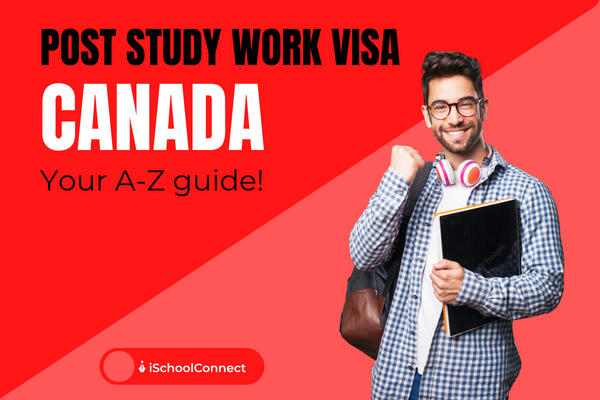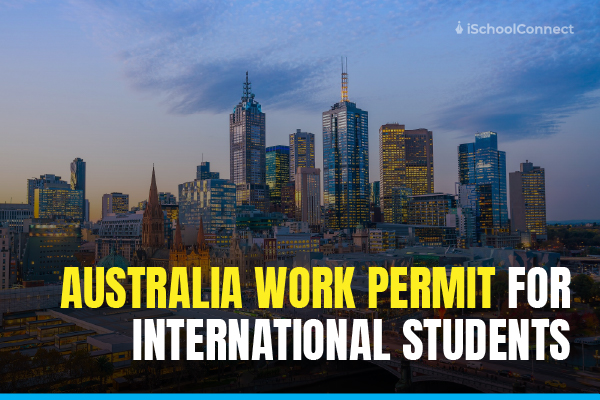Table of Contents
The Post-Graduation Work Permit Program (PGWPP) allows international graduates to work in Canada for up to three years, depending on their study program length. Starting November 1, 2024, new eligibility criteria for Canada’s post-study work visa will require college graduates to complete studies in “eligible fields,” while language proficiency tests will become mandatory, with benchmarks set at CLB 7 for university graduates and CLB 5 for college graduates. This program not only enhances employability but also serves as a pathway to permanent residency in Canada.
Planning to work in Canada after your studies? The Post-Graduation Work Permit Program (PGWPP) offers international students a golden opportunity to gain valuable work experience and set the stage for permanent residency. With flexible job options and work permits valid for up to three years, Canada’s post-study work visa is an essential step for those looking to build their future in Canada. However, new changes effective November 2024 will introduce updated eligibility rules, especially for college graduates. Read on to learn more about the benefits and latest updates to this program.
What is the Post-Graduation Work Permit Programme (PGWPP) in Canada?
Canada’s Post-Graduation Work Permit Programme (PGWPP) provides international students with a valuable opportunity to work in Canada after completing their studies at a designated learning institution (DLI). Canada’s post-study work visa allows graduates to work for any employer across the country, without restrictions on job type or location. The duration of the PGWP ranges from 8 months to 3 years, depending on the length of the study program. One significant advantage of this post-study work visa in Canada for Indian students is that it enables them to gain essential Canadian work experience, which can lead to eligibility for permanent residency pathways, such as the Express Entry system.
How do you apply for a post-graduate work permit in Canada?
If you’re aiming to obtain Canada’s post-study work visa (PGWP), you can apply from outside the country, provided you meet the eligibility requirements. Applications are typically submitted online. Here’s a streamlined breakdown of the application process:
- Check Eligibility: Make sure you meet all eligibility criteria, including having a valid study permit and completing an eligible program.
- Application Timing:
- Apply within 180 days after your graduation date.
- If your study permit has expired, you have 90 days to apply for the PGWP and restore your student status.
- Gather Required Documents:
- Submit proof of program completion, such as your degree, diploma, or an official letter from your educational institution.
- If necessary, include your Medical Exam Certificate.
- Pay Fees:
- Pay the PGWP application fee of CAD 255 (approximately INR 15,572.94).
- If you need to restore your student status, pay an additional CAD 634 (approximately INR 39,517.58).
- Submit Application:
- Pay the open work permit holder fee and the standard work permit fee as required.
- Complete your application online through the Government of Canada’s official website.
- Work While Waiting: If you apply with a valid study permit, you may be allowed to work while your PGWP application is being processed.
The processing time for the post-study work visa in Canada typically ranges from 80 to 180 days, excluding the time required for biometrics.
Benefits You Enjoy after Acquiring Canada’s Post-Study Work Visa
Acquiring a Post-Study Work Visa comes with numerous advantages for international graduates. Here are some key benefits:
- Work Experience in Canada: The PGWP allows graduates to gain valuable work experience in the Canadian job market, enhancing their resumes and increasing future employability.
- Pathway to Permanent Residency: Working in Canada under the PGWP contributes significantly to your application for permanent residency. Canadian work experience is highly valued, especially for programs like the Canadian Experience Class.
- Flexibility in Job Selection: Holders of Canada’s post-study work visa can work for any employer in the country without restrictions on job type or location. This flexibility enables graduates to explore various career opportunities in their field of study or other interests.
- Duration of the Work Permit: The length of the PGWP varies based on the duration of the academic program completed. Graduates from programs lasting eight months or longer can obtain a work permit valid for up to three years.
- Opportunity to Network: Working in Canada offers graduates the chance to build professional networks and establish industry connections, which can be beneficial for future career opportunities.
These advantages make the post-study work visa in Canada for Indian students a valuable step towards a successful career and potential long-term settlement in Canada.
Canada PGWP New Rules
Effective Date: November 1, 2024
Key Changes:
- Eligibility for Existing Students:
Students who applied for or held a study permit before November 1, 2024, will remain eligible for Canada’s post-study work visa (PGWP). New applicants for study permits after this date will be subject to the updated guidelines. - University Graduates:
University graduates will continue to be eligible for PGWPs of up to three years without restrictions based on their field of study. - New Field of Study Requirement for College Graduates:
Graduates from college programs must complete studies in an “eligible field of study” to qualify for a PGWP. The IRCC has identified 966 eligible programs within the following categories:- Agriculture and Agri-Food
- Healthcare
- Science, Technology, Engineering, and Mathematics (STEM)
- Skilled Trades
- Transportation
Notably, fields like tourism, hospitality, and business studies are excluded, which may affect many international students’ job opportunities in Canada.
- Language Proficiency Requirements:
All PGWP applicants must demonstrate proficiency in English or French through approved language tests:- University graduates must achieve Canadian Language Benchmarks (CLB) 7.
- College graduates must meet a lower threshold of CLB 5 across all four language skills (reading, writing, listening, speaking).
These updates reflect Canada’s ongoing efforts to align Canada’s post-study work visa program with national labor market needs while managing the number of international students.
Requirements for Post-study work visa in Canada
The eligibility requirements for a Post-Graduation Work Permit (PGWP) in Canada vary slightly for students applying from within or outside the country. However, the general criteria for obtaining a post-study work visa (PSW) include the following:
- Valid Study Permit: Applicants must hold a valid study permit while applying for a post-study work permit.
- Passport Validity: The applicant’s passport should be valid for at least six months from the date of the PSW application.
- Designated Learning Institutions (DLIs): The applicant must have completed a course of at least 8 months at a DLI in Canada.
Eligibility for Graduates in Canada
Students graduating from Canadian institutions have 180 days to apply for Canada’s post-study work visa after completing their studies. They must confirm their program details, including the name and duration, and provide the necessary documents such as:
- Study Permit Validity: The study permit must have been valid within the last 180 days.
- Visitor Record: If the study permit has expired and the student intends to stay longer, they should apply for a visitor record.
- Study Permit Extension: Students who applied for an extension of their study permit before it expired and are awaiting a decision can apply for a PGWP.
- Change of Status: Students who applied to change their status from student to visitor but haven’t received a decision may still be eligible to apply for a PGWP, even if their study permit has expired.
Eligibility for Outside Canada Graduates
If you are applying for a PGWP from outside Canada, you must meet the following criteria:
- Full-Time Studies: You were a full-time student in each academic semester, except during the final semester or if on an approved leave.
- Program Duration: You completed a program lasting 8 months or longer from a DLI, resulting in a degree, diploma, or certificate.
- Study Permit: You hold a valid study permit or applied for one before starting your program, with approval being required.
Documents Required for PGWP Application
To apply for a Post-Graduation Work Permit (PGWP), you need to provide evidence of your program completion. Acceptable documents include:
- Degree or Diploma: A copy of your awarded degree or diploma.
- Official School Letter: A formal letter from your educational institution confirming your completion.
- Official Transcript: Your academic transcript, which can be an official document or a copy from your school’s website.
How Long is a PGWP Valid For?
The Post-Graduation Work Permit (PGWP) is an essential option for international students in Canada, allowing them to gain valuable work experience after completing their studies. Understanding Canada’s post-study work visa validity is crucial for effective planning regarding your stay and employment in Canada.
Duration of PGWP Validity
As of February 15, 2024, international students graduating from Master’s degree programs lasting less than two years (minimum of 8 months) may qualify for a three-year PGWP. However, the duration of your PGWP depends on the length and level of your study program and the expiry date of your passport, whichever comes first.
Programs | Length of the Program Completed | PGWP Length Eligibility |
Master’s Degree Programs – Scenario 1 | Less than 8 months (or 900 hours for Quebec credentials) | No PGWP granted |
Master’s Degree Programs – Scenario 2 | At least 8 months, even if the program is less than 2 years | 3-year PGWP granted (provided all other criteria are met) |
Other Programs – Scenario 1 | Less than 8 months | No PGWP granted |
Other Programs – Scenario 2 | Length of the program completed | PGWP is valid for the same length as the study program |
Other Programs – Scenario 3 | 2 years or more | 3-year PGWP granted |
Multiple Programs: If a student completes multiple eligible programs, the durations can be combined to determine the length of a single PGWP, provided each program meets the minimum criteria of at least 8 months.
Key Takeaways
- The Post-Graduation Work Permit Program (PGWPP) allows international students to work in Canada and potentially qualify for permanent residency through Canadian work experience.
- Depending on the length of the completed study program, graduates can receive a PGWP valid for up to three years, providing ample time to secure employment and settle in Canada.
- New eligibility criteria and language proficiency requirements will apply to PGWP applicants from November 2024, focusing on fields like STEM, healthcare, and skilled trades, making it essential to stay updated with these changes.
Did you find this blog helpful? Do share your views and perspectives in the comments below. For more information on Canada’s post-study work visa and how it can benefit you, please contact us by clicking here. We would be happy to assist you with your queries.
Liked this blog? Read next: Canada work visa – Everything you need to know!
FAQs
Ques 1. How can you get PR in Canada after 1-year study?
Answer 1- You can apply for PR under the Canadian Experience Class after gaining a minimum of one year of full-time work experience (within three years). You must first create an Express Entry Profile. Then apply for a PR through the CEC route.
Ques 2. Which state in Canada gives PR easily?
Answer 2- Saskatchewan is the easiest province in Canada to get PR due to its Saskatchewan Immigrant Nominee Program (SINP), which offers quicker processing and simpler eligibility criteria for skilled workers and graduates.
Ques 3. Which city in Canada will have more job opportunities in 2024?
Answer 3- In 2024, Brantford, Ontario is ranked as the best city for job opportunities for newcomers. Despite its smaller size, Brantford stands out due to its low unemployment rate and increasing opportunities, particularly for skilled talent.






